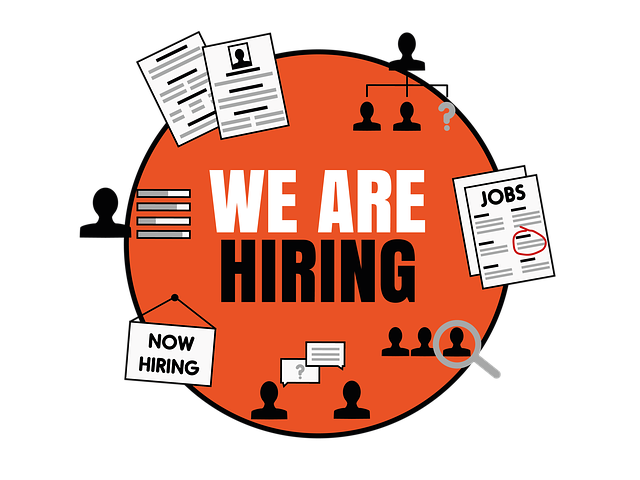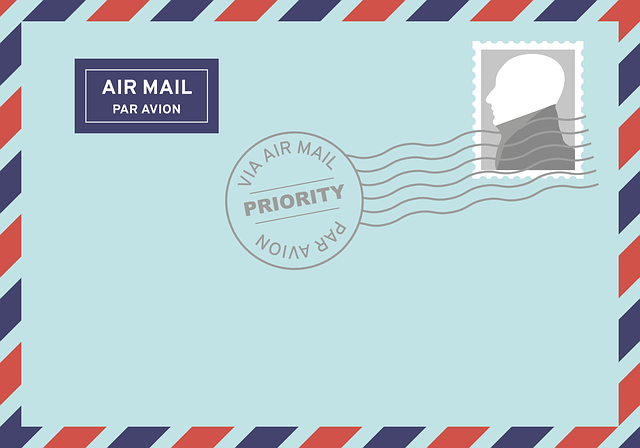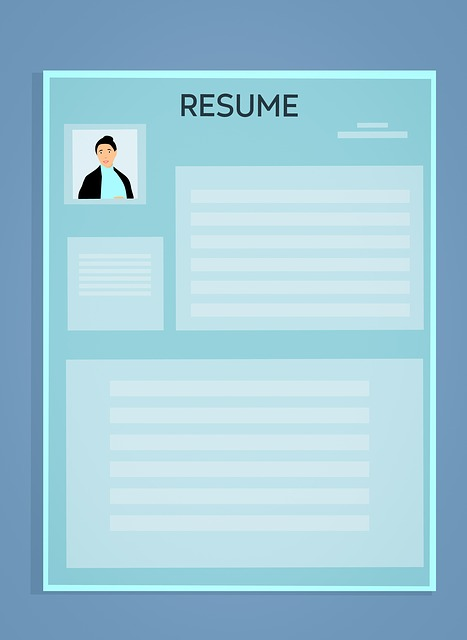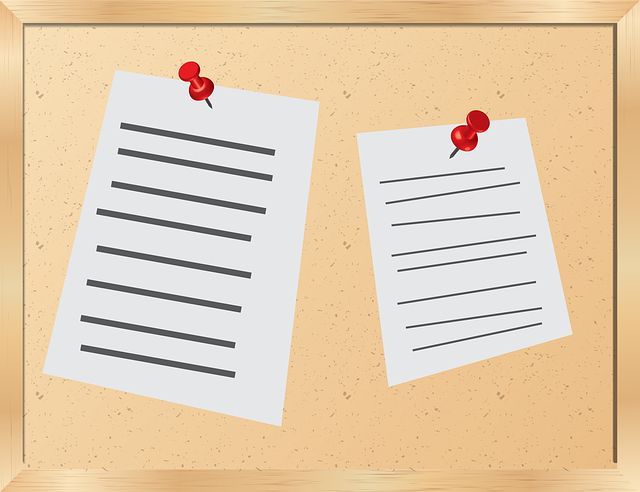
HR Confidentiality
HR confidentiality is the practice of maintaining the privacy of employee information. This includes protecting sensitive data from being shared with unauthorized individuals or released without the consent of the employees involved. HR professionals may collect and manage a variety of confidential employee information, such as medical records, financial information, and performance reviews. Maintaining the confidentiality of this information is vital to protecting the privacy of employees and upholding the trust between employers and employees.
There are a number of laws and regulations that govern HR confidentiality, such as the Health Insurance Portability and Accountability Act (HIPAA) and the Fair Credit Reporting Act (FCRA). These laws dictate how employee information can be collected, used, and disclosed. HR professionals must be familiar with these laws in order to ensure that they are complying with all applicable confidentiality requirements.

Maintaining confidentiality is not always easy, especially in today’s digital age. With so much information being stored electronically, there is a greater risk of data breaches and unauthorized access. HR professionals must take steps to ensure that employee information is protected, such as encrypting data and using password-protected systems. They should also have procedures in place for responding to a breach of confidentiality.
HR confidentiality is a important part of protecting employee privacy. By maintaining the confidentiality of employee information, HR professionals can help to build trust between employers and employees.
^ Back to Top
Legal Records
Legal records are documents that outline the legal history of a person or company. They can include birth certificates, death certificates, marriage licenses, divorce decrees, adoption papers, property deeds, wills, and any other court documents. Legal records can provide important information about someone’s family history, financial history, and personal relationships. They can also be used to settle disputes, establish ownership, and track legal proceedings.
 ^ Back to Top
^ Back to Top
New Hire Paperwork
The new
hire paperwork is a set of forms and documents that an employer requires an employee to complete before starting work. This may
include a job application, direct deposit form, tax forms, and other documents. The new hire paperwork helps the employer to comply with federal and state laws and to gather essential information about the employee. It also helps to protect the employer from liability in the event that an employee does something wrong while on the job.
 ^ Back to Top
^ Back to Top
Private Information
Private information is any data that can be used to identify an individual. This includes things like social security numbers, birthdates, addresses, and phone numbers. It also includes less obvious things like fingerprints, DNA, and financial records. Private information can be stored in physical form, such as on paper or in a database, or it can be transmitted electronically.

There are a number of ways that private information can become public. It can be stolen in a data breach, shared without the individual’s consent, or simply made available through careless disposal (such as throwing away old bills with personal information on them). Once private information is public, it can be used for identity theft, fraud, and other crimes.
Protecting private information is important for individuals and businesses alike. There are a number of steps that can be taken to safeguard data, including encrypting it, storing it securely, and ensuring that only authorized individuals have access to it. Disposing of old records properly is also crucial, as is being careful about what information is shared online and with whom. Taking these precautions can help to prevent private information from falling into the wrong hands.
 ^ Back to Top
^ Back to Top
Certain Confidential Data
Confidential data is any information that could be used to identify an individual or business. This includes, but is not limited to, social security numbers, driver’s license numbers, credit card numbers, bank account numbers, and addresses. Confidential data must be protected from unauthorized access to prevent identity theft and fraud. There are many ways to protect confidential data, including encryption, password protection, and physical security measures.
^ Back to Top
Data Privacy Laws
There is a lot of discussion these days about data privacy laws. In general, these laws protect an individual’s right to privacy with respect to their personal information. This includes things like their name, address, phone number, email address, and any other information that could be used to identify them. These laws vary from country to country, but the goal is always the same: to protect people’s privacy.

There has been a lot of talk lately about whether or not these laws are adequate in the age of the internet. After all, it is now very easy for
companies to collect and store large amounts of data about their customers. And many companies do this without the customers’ knowledge or consent. This has led to a lot of concern about whether or not people’s privacy is truly being protected.
There is no easy answer to this question. On the one hand, it is important to protect people’s privacy. But on the other hand,
companies need to be able to collect and store data in order to provide better products and services. It is a difficult balance to strike, and it is one that lawmakers are still working on.
In the meantime, it is important for everyone to be aware of their rights under data privacy laws. And if you have concerns about how your personal information is being used, you should always contact the company in question and ask them to explain their policies.
 ^ Back to Top
^ Back to Top
Performance Evaluations
Performance
evaluations are a process in which employees are assessed on their job performance. This usually takes place annually, but can also occur more or less frequently depending on the organization. The purpose of performance evaluations is to provide feedback to employees so that they can improve their work and contribute more effectively to the organization. Additionally, performance evaluations can be used to identify training and development needs, as well as to make decisions about promotions, pay raises, and other forms of recognition.
 ^ Back to Top
^ Back to Top
Sue HR Professionals
An HR professional can be sued if they are found to have violated an employee’s civil rights, or if they have been negligent in their duties. Additionally, if an HR professional provides false information to a prospective employer about a current or former employee, they could be sued for defamation.
 ^ Back to Top
^ Back to Top
Appropriately Safeguard Employee Information.
There are a few key ways to safeguard employee information:
-Keep confidential information in a secure, locked location – this could be a physical filing cabinet or a password protected computer file.
-Make sure only authorized personnel have access to the information. This could mean keeping a master list of who is allowed to see what information, and ensuring that only those people have the keys or passwords necessary to access it.
– Regularly review and update security measures to make sure they are still effective. This could include changing passwords, adding new locks, or increasing surveillance.
– Educate employees on how to keep information safe. This could involve training on proper handling of confidential information, as well as awareness of security measures in place.
By taking these steps, you can help to ensure that employee information remains safe and confidential.

Employee Confidentiality Agreement
An employee’s confidentiality agreement is a contract between an employer and an employee that establishes expectations for the handling of confidential information. The agreement typically outlines what information is considered confidential, the employee’s obligations with regard to protecting that information, and the consequences of breaching the agreement. While confidentiality agreements are not required by law, they can be helpful in protecting an employer’s trade secrets and other sensitive information.
 ^ Back to Top
^ Back to Top
Employment Contract
An employment contract is an agreement between an employer and employee that outlines the rights and responsibilities of each party. The contract may be for a specific period of time or it may be an at-will agreement, which can be terminated by either party at any time. An employment contract should outline the duties of the employee, the compensation they will receive, and any benefits they are entitled to. The contract may also outline the conditions under which the agreement can be terminated.
 ^ Back to Top
^ Back to Top
The Safest Way to Transmit Employee Data
The safest way to transmit employee data is to use a secure, encrypted connection. This can be accomplished using a VPN or other secure network connection. Additionally, sensitive data should never be sent via unsecured email channels. If possible, it is best to use a file-sharing service that uses encryption to protect the data in transit.
 ^ Back to Top
^ Back to Top
Genetic Information Nondiscrimination Act
The Genetic Information Nondiscrimination Act (GINA) is a federal law that prohibits discrimination in health insurance and employment on the basis of genetic information. This means that insurers and employers cannot use an individual’s genetic information to make decisions about coverage or employment. GINA also prohibits insurers and employers from requesting or requiring individuals to provide their genetic information.
 ^ Back to Top
^ Back to Top
Medical Information
Medical information is any information that pertains to the diagnosis, treatment, or prevention of a medical condition. This can include but is not limited to: symptoms, test results, treatment options and side effects, prognosis, and medical history. In order for this information to be useful, it must be accurate and up-to-date.
 ^ Back to Top
^ Back to Top
Unemployment Insurance Claims
Unemployment insurance claims are the applications filed by individuals who have lost their jobs and are seeking financial assistance. The process of filing for
unemployment benefits can vary from state to state, but typically requires the completion of an online application. Once an individual has filed a claim, they will receive payments based on their previous earnings and the number of dependents they have. The payments are meant to help individuals cover their basic living
expenses while they search for new employment.
 ^ Back to Top
^ Back to Top
Violation of HR Confidentiality Laws
There are a few instances when a company could violate HR confidentiality laws. For example, if an employer was to share an employee’s medical information with someone who does not have a legitimate
need to know, this would be a violation. Another instance would be if an employer were to share salary information or performance reviews without the employee’s consent. Additionally, if an employer were to access an employee’s private emails or social media accounts without their permission, this would also be a violation of HR confidentiality laws.
 ^ Back to Top
^ Back to Top
Functions of the HR Department
The
human resources department is responsible for a wide range of functions within an organization. These functions can include recruiting and
hiring employees, managing employee benefits and records, and administering payroll and training programs. The
human resources department also plays a key role in developing and enforcing organizational policies, as well as promoting employee morale and engagement. In short, the human resources department is responsible for ensuring that an organization’s most important asset – its people – are properly managed and supported.
 ^ Back to Top
^ Back to Top
Protecting the Human Resource Department’s Credibility
To protect the human resource department’s credibility, managers should ensure that employees are treated fairly and consistently. They should also ensure that communication is clear and open, and that employees feel like they can trust the department. Additionally, managers should make sure that the department is well organized and efficient, so that employees feel confident in its ability to support them. Finally, managers should be transparent in their decision-making and open to feedback so that employees feel like they are part of the process. By taking these steps, managers can create a human resource department that is credible and trusted by employees.
 ^ Back to Top
^ Back to Top
How the Human Resources Department Supports Business Strategies
The human resources department is responsible for a wide range of functions that support the business strategy of an organization. They may be responsible for recruiting, training, and developing employees; designing and administering benefit programs; and
managing employee records. In order to carry out these tasks effectively, the human resources department must have a good understanding of the business strategy of the organization and how it can be supported through HR initiatives.
The human resources department plays a vital role in supporting the business strategy of an organization by attractiing, developing, and retaining employees who have the skills and abilities to contribute to the success of the organization. They may also design and administer employee benefit programs that help to attract and retain employees. In addition, the human resources department manages employee records and ensures compliance with laws and regulations. By carrying out these tasks effectively, the human resources department can help to ensure that the business strategy of an organization is successful.
 ^ Back to Top
^ Back to Top
Employment Contracts
There are a few key instances when it is beneficial for a company to use employment contracts. First, if an employee will be performing work that is critical to the company’s business, it is important to have a contract in place in order to protect the company’s interests. For example, if an employee is developing a new software application for the company, it is important to have a contract that stipulates that the company will own the resulting software. Second, employment contracts can be used to protect trade secrets or other confidential information. If an employee will have access to sensitive information, a contract can help to ensure that this information is not shared with others without the company’s permission. Finally, contracts can be used to set out specific terms and conditions of employment, such as compensation, vacation time, and other benefits. This can help to avoid disputes down the road and ensure that both the employer and employee are clear on what is expected.
 ^ Back to Top
^ Back to Top
Avoid Disclosing Employment Related Information
There are a few key ways that companies can avoid disclosing employment related information. First, they can have a policy in place that prohibits employees from sharing confidential information with outsiders. This policy should be clearly communicated to all employees and enforced consistently. Second, companies can require employees to sign non-disclosure agreements (NDAs) that prohibit them from sharing confidential information. Finally, companies can limit access to confidential information to only those employees who
need it for their job duties. By taking these measures, companies can help protect their confidential information and avoid any potential legal liabilities.
 ^ Back to Top
^ Back to Top
The Americans with Disabilities Act (ADA)
The Americans with Disabilities Act (ADA) is a federal civil rights law that prohibits discrimination against individuals with disabilities in all areas of public life, including employment, education, transportation, and access to public and private places. The ADA also establishes requirements for businesses and other entities to provide reasonable accommodations for individuals with disabilities.
The ADA is one of the most comprehensive civil rights laws in existence, and its protections extend to a wide range of disabilities, including physical, mental, and emotional impairments. The law also prohibits discrimination against individuals with a history of disability or those who are perceived to have a disability. The ADA is enforced by the U.S. Department of Justice, and individuals who believe they have been subjected to discrimination can file a complaint with the department.

The ADA applies to all employers with 15 or more employees, as well as state and local government agencies, public accommodations, and places of education. The law also applies to employment agencies and labor organizations. Employers covered by the ADA are required to provide reasonable accommodations for qualified individuals with disabilities, and they are prohibited from
discriminating against these individuals in the hiring process, firing them, or in any other aspect of employment.
The ADA also establishes requirements for businesses and other entities that serve the public, such as restaurants, hotels, and stores. These businesses must make reasonable accommodations for individuals with disabilities, and they are also prohibited from discriminating against these individuals in the provision of services.

The ADA has been in effect since 1990, and its requirements have been amended several times over the years. The most recent amendments, which went into effect in 2009, expanded the definition of disability and increased the penalties for violations of the law. The ADA is a complex law, and its provisions are not always easy to interpret. If you believe you have been subjected to discrimination under the ADA, you should contact an experienced civil rights attorney to discuss your case.
Thank you for your question. The Americans with Disabilities Act (ADA) prohibits discrimination against individuals with disabilities in all areas of public life, including employment, education, transportation, and access to public and private places. The ADA also establishes requirements for businesses and other entities to provide reasonable accommodations for individuals with disabilities. For more information about the ADA, please visit the U.S. Department of Justice’s website:
www.ada.gov.
 ^ Back to Top
^ Back to Top
Confidentiality Breach
A confidentiality breach occurs when private or sensitive information is released without the authorization of the person or organization who owns the information. This can happen through unauthorized access to data, intentional disclosure of information, or simple human error. A confidentiality breach can have serious consequences for individuals, businesses, and governments. In some cases, it can lead to identity theft, fraud, or other financial crimes. It can also damage relationships and reputations.
^ Back to Top
Sensitive Employee Information
Sensitive employee information is any type of data that could potentially be used to exploit or harm an individual. This can include things like Social Security numbers, driver’s license numbers, bank
account information, and credit card numbers. It also includes more personal details like home addresses, phone numbers, and email addresses.

In the wrong hands, this type of information can be used to commit identity theft, fraud, or other crimes. That’s why it’s important for companies to take steps to protect sensitive employee information from unauthorized access. This might include encrypting data, storing it in a secure database, and restricting access to only those who need it.
^ Back to Top
Employee Trust Employees
There are a few key things that contribute to employee trust. First, employees need to feel like they can openly communicate with their managers without fear of retribution. Secondly, employees need to feel like they are being treated fairly and consistently. Lastly, employees need to feel like they have a voice in the organization and that their input is valued.
 ^ Back to Top
^ Back to Top
Workers Compensation Claims
Workers’
compensation claims are filed by employees who have been injured at work. These claims are used to seek financial reimbursement for medical expenses and lost wages. In order to be eligible for workers’ compensation benefits, an employee must have been injured while performing their job duties.
^ Back to Top
Need to Know Basis
Need to know basis is important because it allows people to access information that is relevant to them and their work. It also helps to protect sensitive information from being accessed by those who should not have it. Need to know basis can help improve communication and collaboration within an organization by ensuring that people have the information they need when they need it.
 ^ Back to Top
^ Back to Top
Why Need to Know is Important
It is important to have a need to know basis for information because it helps ensure that people are only accessing information that is relevant to them. This can help protect sensitive information from being accessed by those who should not have it. Need to know basis can also improve communication and collaboration within an organization by making sure that people have the information they need when they need it.
^ Back to Top
Laws Governing HR Confidentiality
Yes, there are laws governing hr confidentiality. The federal HIPAA privacy rule and state laws protect the confidentiality of health information. HR professionals must comply with these rules when handling employee health information.
 ^ Back to Top
^ Back to Top
Common HR Documents Resumes
There are a few common HR documents that are typically seen in most workplaces. These include resumes,
cover letters, and job applications.
Resumes are usually the first step in the hiring process and can give potential employers a good overview of your skills and experience. Cover letters are typically used to introduce yourself to a company or specific position, and
job applications are usually used to apply for specific jobs. All of these documents play an important role in the
hiring process and can give you a better chance of being hired if they are well-written and tailored to the specific position or company.
 ^ Back to Top
^ Back to Top
Workplace Injury Report
A workplace injury report is a document that is used to record and track injuries that occur in the workplace. This type of report is typically created by the employer and includes information such as the date and time of the injury, the location of the injury, a description of the injury, and the name of the employee who was injured. The purpose of a workplace injury reports is to help employers identify and prevent potential hazards in the workplace.
^ Back to Top
Employee Files
An employee file is a collection of documents that pertain to an individual employee. The contents of an employee file may vary depending on the employer, but typically includes items such as the employee’s application, performance reviews, and disciplinary records.
Employers usually keep employee files in a confidential manner, and only allow authorized personnel to access them.
 ^ Back to Top
^ Back to Top
Workers Compensation Disclosure Rules
Workers compensation disclosure rules are designed to ensure that employees are made aware of their rights and responsibilities under workers compensation laws. These rules typically require employers to provide employees with information about their coverage, including the amount of coverage and the benefits available. Employees must also be informed of any changes to their coverage, such as reductions in benefits or an increase in premiums. In some cases, employees may be required to
sign a waiver acknowledging their receipt of this information.
 ^ Back to Top
^ Back to Top
How the Mapertunity Experience is Different
When we designed Mapertunity, we optimized for both the candidate and the
hiring managers experience.
- Candidate wants to find jobs that are not only a perfect fit for them but are closest to where they are currently located.
- Hiring Managers wants to find the perfect candidate and would love to avoid the expenses of relocating someone.
Mapertunity brings both of these desires together. But it does much more than that.
Mapertunity removes all the friction that the current system has built into it. There is no more guessing what
candidates are available or what jobs are available.
Both available jobs and available candidates in a geographic searchable region are simply displayed on the map to be further explored. In addition, contact information is not hidden for either the Hiring Manager or potential Candidates. There are no hidden barriers, like third party recruiters, between candidates and job posters.
There is currently no system in the world that will tell a company how many actual workers are available within any geographic region in the world.
There is currently no system in the world that will display on a
map all the jobs and all the companies hiring in any geographic region in the world.
Just center the
map on your location and press SEARCH.
Mapertunity can do this. Mapertunitye will show you where both the
jobs and the candidates are located. There is no system that will tell
workers which companies are hiring in any geographic radius where the job seeker might be interested in searching.
^ Back to Top
Mapertunity reduces the global carbon footprint of both workers and businesses.
We believe the closer a
job is to someone’s current location, the more likely they will stay in that job and the closer a worker is to a business, the more likely a business will be able to hold onto those workers. Economist calls this “being sticky”.
 ^ Back to Top
^ Back to Top
On Mapertunity you can Search Jobs and Candidates By:
- Job Title or Keyword
- City
- State/Region
- Country
- Postal Code
- Industry
- Distance from Map Center ( Search the whole Earth if you want)
^ Back to Top


 Maintaining confidentiality is not always easy, especially in today’s digital age. With so much information being stored electronically, there is a greater risk of data breaches and unauthorized access. HR professionals must take steps to ensure that employee information is protected, such as encrypting data and using password-protected systems. They should also have procedures in place for responding to a breach of confidentiality.
HR confidentiality is a important part of protecting employee privacy. By maintaining the confidentiality of employee information, HR professionals can help to build trust between employers and employees.
^ Back to Top
Maintaining confidentiality is not always easy, especially in today’s digital age. With so much information being stored electronically, there is a greater risk of data breaches and unauthorized access. HR professionals must take steps to ensure that employee information is protected, such as encrypting data and using password-protected systems. They should also have procedures in place for responding to a breach of confidentiality.
HR confidentiality is a important part of protecting employee privacy. By maintaining the confidentiality of employee information, HR professionals can help to build trust between employers and employees.
^ Back to Top
 ^ Back to Top
^ Back to Top
 ^ Back to Top
^ Back to Top
 There are a number of ways that private information can become public. It can be stolen in a data breach, shared without the individual’s consent, or simply made available through careless disposal (such as throwing away old bills with personal information on them). Once private information is public, it can be used for identity theft, fraud, and other crimes.
Protecting private information is important for individuals and businesses alike. There are a number of steps that can be taken to safeguard data, including encrypting it, storing it securely, and ensuring that only authorized individuals have access to it. Disposing of old records properly is also crucial, as is being careful about what information is shared online and with whom. Taking these precautions can help to prevent private information from falling into the wrong hands.
There are a number of ways that private information can become public. It can be stolen in a data breach, shared without the individual’s consent, or simply made available through careless disposal (such as throwing away old bills with personal information on them). Once private information is public, it can be used for identity theft, fraud, and other crimes.
Protecting private information is important for individuals and businesses alike. There are a number of steps that can be taken to safeguard data, including encrypting it, storing it securely, and ensuring that only authorized individuals have access to it. Disposing of old records properly is also crucial, as is being careful about what information is shared online and with whom. Taking these precautions can help to prevent private information from falling into the wrong hands.
 ^ Back to Top
^ Back to Top
 There has been a lot of talk lately about whether or not these laws are adequate in the age of the internet. After all, it is now very easy for companies to collect and store large amounts of data about their customers. And many companies do this without the customers’ knowledge or consent. This has led to a lot of concern about whether or not people’s privacy is truly being protected.
There is no easy answer to this question. On the one hand, it is important to protect people’s privacy. But on the other hand, companies need to be able to collect and store data in order to provide better products and services. It is a difficult balance to strike, and it is one that lawmakers are still working on.
In the meantime, it is important for everyone to be aware of their rights under data privacy laws. And if you have concerns about how your personal information is being used, you should always contact the company in question and ask them to explain their policies.
There has been a lot of talk lately about whether or not these laws are adequate in the age of the internet. After all, it is now very easy for companies to collect and store large amounts of data about their customers. And many companies do this without the customers’ knowledge or consent. This has led to a lot of concern about whether or not people’s privacy is truly being protected.
There is no easy answer to this question. On the one hand, it is important to protect people’s privacy. But on the other hand, companies need to be able to collect and store data in order to provide better products and services. It is a difficult balance to strike, and it is one that lawmakers are still working on.
In the meantime, it is important for everyone to be aware of their rights under data privacy laws. And if you have concerns about how your personal information is being used, you should always contact the company in question and ask them to explain their policies.
 ^ Back to Top
^ Back to Top
 ^ Back to Top
^ Back to Top
 ^ Back to Top
^ Back to Top

 ^ Back to Top
^ Back to Top
 ^ Back to Top
^ Back to Top
 ^ Back to Top
^ Back to Top
 ^ Back to Top
^ Back to Top
 ^ Back to Top
^ Back to Top
 ^ Back to Top
^ Back to Top
 ^ Back to Top
^ Back to Top
 ^ Back to Top
^ Back to Top
 ^ Back to Top
^ Back to Top
 ^ Back to Top
^ Back to Top
 ^ Back to Top
^ Back to Top
 ^ Back to Top
^ Back to Top
 The ADA applies to all employers with 15 or more employees, as well as state and local government agencies, public accommodations, and places of education. The law also applies to employment agencies and labor organizations. Employers covered by the ADA are required to provide reasonable accommodations for qualified individuals with disabilities, and they are prohibited from discriminating against these individuals in the hiring process, firing them, or in any other aspect of employment.
The ADA also establishes requirements for businesses and other entities that serve the public, such as restaurants, hotels, and stores. These businesses must make reasonable accommodations for individuals with disabilities, and they are also prohibited from discriminating against these individuals in the provision of services.
The ADA applies to all employers with 15 or more employees, as well as state and local government agencies, public accommodations, and places of education. The law also applies to employment agencies and labor organizations. Employers covered by the ADA are required to provide reasonable accommodations for qualified individuals with disabilities, and they are prohibited from discriminating against these individuals in the hiring process, firing them, or in any other aspect of employment.
The ADA also establishes requirements for businesses and other entities that serve the public, such as restaurants, hotels, and stores. These businesses must make reasonable accommodations for individuals with disabilities, and they are also prohibited from discriminating against these individuals in the provision of services.
 The ADA has been in effect since 1990, and its requirements have been amended several times over the years. The most recent amendments, which went into effect in 2009, expanded the definition of disability and increased the penalties for violations of the law. The ADA is a complex law, and its provisions are not always easy to interpret. If you believe you have been subjected to discrimination under the ADA, you should contact an experienced civil rights attorney to discuss your case.
Thank you for your question. The Americans with Disabilities Act (ADA) prohibits discrimination against individuals with disabilities in all areas of public life, including employment, education, transportation, and access to public and private places. The ADA also establishes requirements for businesses and other entities to provide reasonable accommodations for individuals with disabilities. For more information about the ADA, please visit the U.S. Department of Justice’s website: www.ada.gov.
The ADA has been in effect since 1990, and its requirements have been amended several times over the years. The most recent amendments, which went into effect in 2009, expanded the definition of disability and increased the penalties for violations of the law. The ADA is a complex law, and its provisions are not always easy to interpret. If you believe you have been subjected to discrimination under the ADA, you should contact an experienced civil rights attorney to discuss your case.
Thank you for your question. The Americans with Disabilities Act (ADA) prohibits discrimination against individuals with disabilities in all areas of public life, including employment, education, transportation, and access to public and private places. The ADA also establishes requirements for businesses and other entities to provide reasonable accommodations for individuals with disabilities. For more information about the ADA, please visit the U.S. Department of Justice’s website: www.ada.gov.
 ^ Back to Top
^ Back to Top
 In the wrong hands, this type of information can be used to commit identity theft, fraud, or other crimes. That’s why it’s important for companies to take steps to protect sensitive employee information from unauthorized access. This might include encrypting data, storing it in a secure database, and restricting access to only those who need it.
^ Back to Top
In the wrong hands, this type of information can be used to commit identity theft, fraud, or other crimes. That’s why it’s important for companies to take steps to protect sensitive employee information from unauthorized access. This might include encrypting data, storing it in a secure database, and restricting access to only those who need it.
^ Back to Top
 ^ Back to Top
^ Back to Top
 ^ Back to Top
^ Back to Top
 ^ Back to Top
^ Back to Top
 ^ Back to Top
^ Back to Top
 ^ Back to Top
^ Back to Top
 ^ Back to Top
^ Back to Top
 ^ Back to Top
^ Back to Top